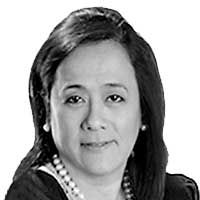Wishful thinking

Wish ko lang… this should be the motto of the Commission on Elections (Comelec) for the 2013 vote.
Comelec Chairman Sixto Brillantes Jr. is clearly aware of the many ills plaguing the country’s election system. For the past few months he has tried to address several of the problems – and has been foiled at every step.
Brillantes tried to limit political advertising on radio and TV, which naturally favors moneyed candidates. He was stopped by the courts.
He encouraged the public to report violations of campaign poster display rules. Politicians ignored the order and the public has given up trying to report and stop the violations. Politicians are also among the worst violators of the election gun ban.
Brillantes tried to drastically prune the number of party-list organizations, tossing out those seen to be making a mockery of a system that’s supposed to work for the marginalized. The Supreme Court tossed out its own decade-old jurisprudence, scrapped Comelec disqualification orders and issued a new set of guidelines for party-list accreditation.
A sure sign that a public official is in trouble in this country is when his programs become the butt of jokes. Brillantes is the flavor of the season.
Yesterday he himself cracked jokes about the Comelec’s woes. A day after the SC stopped the poll body’s extension of the liquor ban from two to five days, Brillantes quipped that he needed a drink.
His latest setback is his attempt to stop vote-buying by imposing a ban on bank withdrawals larger than P100,000 until election day.
* * *
While the objective is fine, the tack is haphazard. Even if the SC doesn’t stop the Comelec order, how can the money ban be effectively enforced? The Bangko Sentral ng Pilipinas, regulator of the banking system, said it could violate bank secrecy laws.
Malacañang dismissed the ban as a “shotgun approach†that could adversely affect economic activities. The Bangko Sentral said it could not enforce the Comelec order.
The poll body relented a bit yesterday, saying it would not lift its order but would leave its enforcement to individual banks, whose officials are expected to know their clients. This probably prompted the Bankers Association of the Philippines to seek clarification from the SC yesterday.
Even if Brillantes simply wanted to scare politicians into believing, or at least suspecting, that the Comelec is watching their financial transactions, the money ban is too late.
In the first place, the vote buy-and-sell started a long time ago, in certain areas even before the official start of the campaign. There are many stories of households in Metro Manila, especially in depressed communities, receiving from P300 to P500 a week and a sack of rice per month starting in January from local candidates.
Politicians have been forced to resort to this costly, long-term cultivation of a loyal support base, with the unspoken promise of continued benefits in case of election victory, because poll automation eliminated a foolproof system of verifying if vote buyers get what they pay for.
Vote buying in this country, whether in cash or kind, can be difficult to prove in court. Anyone who leaves a money trail in buying votes isn’t going to last long in Philippine politics.
Even if bankers know who are the public officials among their clientele, large withdrawals for fund distribution are likely to be made not by candidates themselves from their own accounts, but by their campaign donors from the private sector, who are usually legitimate businessmen. Or else the funds are funneled through corporate accounts.
The distribution of funds typically intensifies in the final week of the campaign. This week. Which means candidates who have not yet distributed funds to their local leaders by this time are either headed for trouble on election day or are richer after pocketing campaign contributions.
* * *
In its series of frustrated initiatives, the Comelec’s ends are laudable, but the means are kneejerk, with little thought given to effective enforcement.
Instead of resigning or giving up on election reforms, however, Brillantes can learn from experience and start devising better ways of achieving his objectives.
He must remember that he is up against a system that has benefited politicians for as long as we can remember. This sector is among the most resistant to change in this country, and those belonging to it have the power to frustrate reform measures.
President Aquino, who seems bent on having as many of his Senate candidates win at any cost this Monday, should support electoral reform efforts, not just of the Comelec but also those that might be initiated in Congress, including proposals to regulate campaign finance.
Many corrupt deals are hatched during political campaigns. Sweetheart deals and sinecures are awarded as payment for debts incurred during elections. If the daang matuwid administration wants to clean up government, the housecleaning should start during election campaigns.
Right now all we have is Brillantes’ wishful thinking for a cleaner campaign and a credible vote. But give him an A for trying, for calling attention to the many ills plaguing Philippine elections.
Brillantes has three years to think of better ways to confront those problems. The reforms should be ready for effective implementation in the 2016 elections.
- Latest
- Trending





























